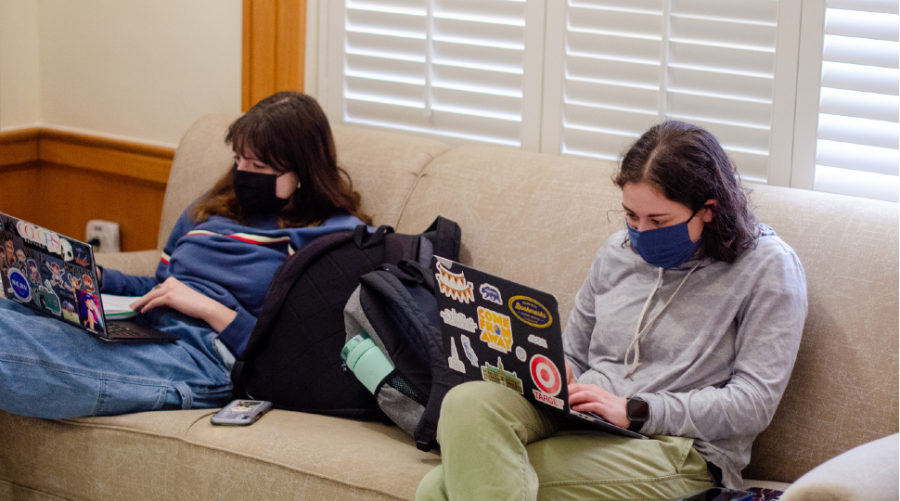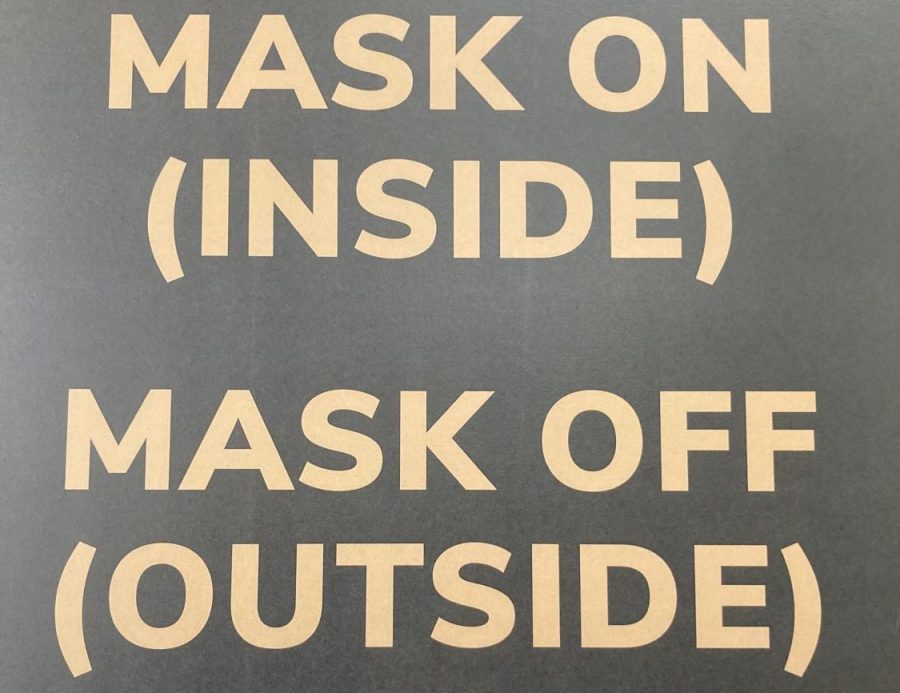On Monday, March 23, students returned to class after an extended spring break. However, this time, they did not return to their traditional classroom setting. There were no classmates, desks, whiteboards or lecture halls. Instead, there were bedrooms, televisions, family members and (oftentimes bad) internet connection.
In an effort to slow the spread of COVID-19, the university switched to remote instruction. Professors have been using video conferencing services like WebEx and Zoom, which help students feel like they are in a real classroom setting even while learning from home. For example, on Zoom, students can press a button to virtually raise their hands and interact with classmates.
Although every student will have a unique transition to learning at home, one thing is clear: this is uncharted territory.
Such a change calls for an adjustment period, which many students are finding to be difficult. Senior Kara Towery worked as a Resident Advisor in Bostwick Residence Hall. She misses her friends and has found it challenging to learn without them.
“Virtual learning is hard because I miss everything about Wake [Forest] and that is in the back of my mind throughout this,” Towery said. “I miss my residents and friends, and I miss going to the Pit and Zicks and everything else that I do with the people I love and care about.”
Moreover, freshman Di Wang, an international student from China who is currently living at the university, is also concerned about maintaining relationships while learning remotely.
“My biggest concern about online learning is that I am losing the in-person interactions with my teachers,” Wang said. “I really miss being able to have conversations with my peers and professors.”
Despite student concerns, there is a silver lining amid this adjustment period. Many faculty members have reformatted their curriculum to be compatible with that of an online environment. Similarly, many are offering remote, and sometimes extended, office hours.
For example, Spanish Professor Encarna Turner is offering extended virtual office hours for her students throughout the week. So far, she is proud of the way her students have adjusted to remote teaching.
“I have been very impressed with the maturity of our students,”Turner said. “We have a high population of students that come from the New York/New Jersey area who, despite the very tense atmosphere they are currently under, are focused, coming prepared to class and want to try to continue a normal, new routine.”
Furthermore, many services are still available to students as they learn from home. Jacqueline Friedman, the associate director of the Learning Assistance Center, said her office is still offering all of its in-person services in an online format.
“Our academic coaching appointments are still available,” Friedman said. “Our tutoring has also continued. It is free for students; they just go to the online sign-up.”
Friedman also suggests that students visit the Learning Assistance Center’s online learning assistance website. This website includes a variety of resources for students, such as how to establish a productive learning environment at home and guidance for those seeking technology support.
“Everyone is different,” said Hu Womack, an instruction and outreach librarian at Z. Smith Reynolds Library. “It is important to use sites like this that help people figure out what is going to be the best way for them to learn through remote learning.”
Finally, in the spirit of Pro Humanitate, the university has allowed undergraduate students to switch their courses to Pass/Fail for the Spring 2020 semester. Undergraduates must make their decision by 5 p.m. on April 17.
Although learning from home is unknown terrain for us all, we must remember that remote Deacs are still Deacs. We will persevere and learn from this, and come out stronger than before.

![Ivy Arisa, a UT senior majoring in government, studies Spanish at her Austin apartment on Monday. [NICK WAGNER/AMERICAN-STATESMAN]](https://wfuogb.com/wp-content/uploads/2020/04/US-NEWS-COLLEGE-STUDENTS-WORRY-ABOUT-THEIR-1-AU.jpg)











